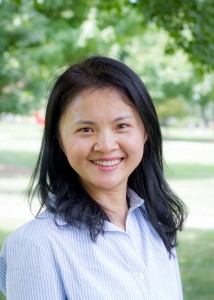

This thesis also contains reflections on the distinction in modern scholarly literature between yangsheng and xian 仙 as one between “longevity” and “immortality.” Although there is a loose and general sense of difference between the two (which is rarely made explicit in the literature), it is not made along lines of “never dying” as the immortality translation implies. Cosmological and spiritual mappings of inner nature and the body found in all three genres give rise to the fluidity of yangsheng 養生(cultivating life) practices across these categorical boundaries. It suggest phenomenology and embodiment studies as better critical tools for explaining their interrelations. It also problematizes the modern distinctions between Chinese medicine, philosophy and religion as discrete genres both in modern scholarship and imperial histories. The diversity of these sources provides a bird’s eye view into a broad array of earlier material, mainly from the Han to the Eastern Jin periods, enabling readers to get a sense of its scope and relationship to the larger fields of Daoist and medical literature. This thesis contains a critical addition and annotated translation of an eighth century Chinese health manual, as well as a philological history of all materials cited in it. I argue that the differences could be read as the authors’ participation in different philosophical discourses, and I will show, for the case of Cheng Xuanying, how terminological overlap with contemporary Buddhist authors indicates that Buddhists and Daoists both participated in the discourse on inner cultivation with commentaries to their respective sacred scriptures.
Parallel excerpts from both commentaries show how Cheng reads the Daode jing as a guidebook for cultivation, and how Li Rong reads it as a guideline for governing. Instead of trying to pinpoint influences, origins, and derivatives, I propose to delineate philosophical discourses that cross the boundaries of the three teachings. This paper takes the different interpretations of one and the same sentences in the Daode jing as “inner cultivation” or “worldly power” respectively, in the commentaries of two closely related early Tang Daoist authors, Cheng Xuanying 成玄英 and Li Rong 李荣, as a starting point to approach the question of interaction of Buddhism and Daoism from a new angle.


 0 kommentar(er)
0 kommentar(er)
